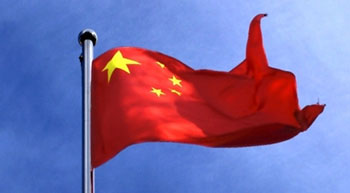BEIJING, Aug. 3 (Xinhua) -- The surprise merger of China's two largest ride-hailing businesses, Didi and Uber, has stoked concerns over the possible rise of a monopoly and potential damage caused to the sharing economy business model.
Chinese on-demand mobility (ODM) firm Didi announced on Monday that it would effectively draw a line under the bruising competition between the two companies by taking over its U.S. rival, Uber's China business, creating a 35 billion U.S. dollar powerhouse.
Didi did not disclose the stake it will take in Uber, but it was reported that Uber will hold a 5.89 percent stake in Didi. Despite the merger, Uber's China service will continue to operate independently.
The two companies have been locked in a bitter battle for business in China, which has been marked by huge customer discounts.
"Uber has been a grand rival and we have had an epic battle ...We raged an earth-shaking war, and when we join hands, our love will last until the end of time," Didi CEO Cheng Wei and President Jean Liu wrote in an internal email on Monday.
Cheng and Liu pointed out that the intense rivalry helped the two parties to grow quickly and contributed to soaring market growth, making China the world's largest ODM market.
FEAR OVER A RISING GIANT
The merger made headlines, with many Chinese customers worried about the prospect of higher fares and drivers concerned about lower pay as the two companies could form a monopoly that disrupts market competition.
In the first quarter of the year, Didi took the lead in the ODM market with a market share of over 85 percent, followed by Uber, Yongche, and Shenzhou Zhuanche. The combined market share of Didi and Uber reached over 93 percent, according to a report from data provider CNIT-Research.
"I am worried about fewer discounts and higher fees," said Wang Rong, a 27-year-old resident of Hangzhou, capital of eastern China's Zhejiang Province.
"I hope my salary will not decrease in the future," said Shen Yangfei, a Hangzhou driver.
Didi claims that the merger will not significantly change ODM prices, and they will continue to offer subsidies to passengers and drivers for some time as they still only reach about one percent of China's 800 million urban population.
In China, if two companies planning a merger have a combined China-wide annual revenue of at least 2 billion yuan (about 302 million U.S. dollars), with each individual company having a China-wide turnover of at least 400 million RMB, they must file an approval report to China's anti-monopoly bureau.
The Ministry of Commerce, said Tuesday that they had not received a declaration from the two parties yet, pointing out that related watchdogs should conduct investigations if the case is found to exclude competition according to Chinese laws and regulations.
According to Didi,the two companies have yet to make a profit, and Uber China did not meet the declaration standards last year.
Wei Dong, CEO of Shouqi Limousine & Chauffeur, another ODM market player, believes that the existence of other ODM platforms offering different competition make a Didi and Uber monopoly unlikely.
THE SHARING ECONOMY
The merger comes just a few days after China legalized ODM services, the first country in the world to do so at national level.
"This is landmark progress as the Chinese government shows a clear stance towards business model reform and innovation ... We are representatives of the development trend of industry and society, and we will keep on going," Cheng and Liu wrote in the email.
The recent growth of the ride-hailing business is indicative of the boom in China's sharing economy, which covers a range of areas, including home rentals and social dining.
A Nielsen report last year showed that 94 percent of young Chinese have shown an interested in the sharing economy, almost double the rate in North America.
There is also government support for the business model, as Premier Li Keqiang stressed developing the sharing economy in this year's government work report.
Li reiterated the government's position while addressing the opening of the Summer Davos meeting in June, saying that the sharing economy offered everyone a chance to participate and benefit, which will contribute to a fairer distribution of income and a stronger middle class.
China's sharing economy market value reached about two trillion yuan in 2015 and is expected to grow at an average annual rate of 40 percent over the next five years, according to a report released by the Internet Society of China earlier this year.









